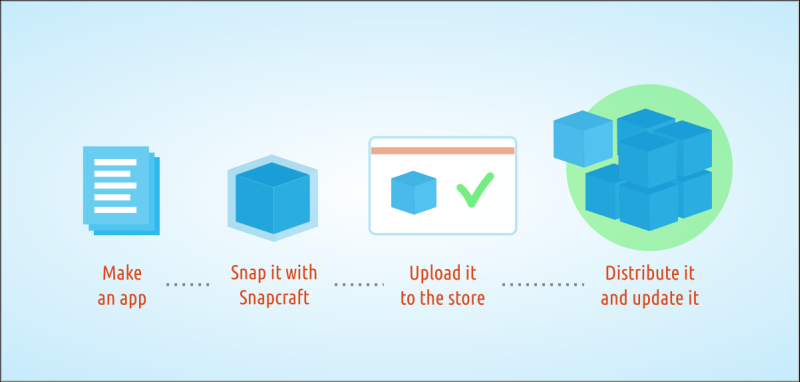 NEWS
NEWS
 NEWS
NEWS
 NEWS
NEWS
With a newly signed deal with longtime antagonist Microsoft under its belt, Canonical Ltd. is rolling out the sixth major release of Ubuntu Long-Term Support (LTS), adding features that should improve the Linux distribution’s appeal to developers and enterprises. An LTS release is supported and maintained by Canonical for five years, making it an attractive choice for long-term, large-scale deployments.
Version 16.04 features the new ‘snap’ package format that Canonical originally rolled out in late 2014 as well as the LXD pure-container hypervisor based on the recently released OpenStack Mitaka. Canonical also said it will make the full feature set of Ubuntu Linux available on IBM z Systems mainframes and LinuxONE servers with flat pricing.
The addition of “snaps” is a logical evolution of a concept that emerged with mobile devices. Snaps are self-contained software modules that come with all underlying dependencies built in so there is less risk that a change to one program can wreck others. Snaps can coexist with Debian packages to enable Ubuntu to maintain its existing processes for development and updates. Snaps can also be updated more easily than conventional software bundles in the same way that updates to mobile apps happen in the background. Canonical is also simplifying the process of building snaps with a new tool called “snapcraft.”
The security mechanisms in snap packages allow for faster iteration across all versions of Ubuntu and Ubuntu derivatives, since snap applications are isolated from the rest of the system, Canonical said. Developers can choose specific versions of the library to bundle with their app, which enhances stability. Snaps are also a component of Canonical’s intentions to create a converged Ubuntu across desktop, mobile and Internet of Things apps.
LXD is a container hypervisor that can run machine containers with the semantics and behavioral qualities of a virtual machine, but with the performance and density characteristics of containers, Canonical said. It delivers 14 times the density and substantially greater speed for Linux guests compared to conventional virtualization platforms.
“LXD is an exciting new hypervisor – faster and denser than anything Linux has seen before,” said Anand Krishnan, executive vice president of Canonical.
LXD can launch new containers in less than a second and hundreds of containers can live on a single machine with hardware-level security. LXD containers can also host Docker containers. Using LXD as a hypervisor for OpenStack enables greater density of workloads and low latency that makes it valuable for time-sensitive workloads, Canonical said.
The new release also features full support for OpenStack Mitaka, which debuted just two weeks ago. “This will be the only distribution to be in step with Mitaka on the day or release,” Krishnan said. “Anyone who wants all the Mitaka features today will need to use Ubuntu. The rest will be six or seven months down the road.”
Also new is support for ZFS-on-Linux, a combination volume manager and file system that enables efficient snapshots, copy-on-write cloning, continuous integrity checking against data corruption, automatic file system repair and data compression. Finally, Canonical added support for CephFS, a popular distributed file system for large-scale storage in clustered environments.
Canonical sells Ubuntu Advantage support services, at three different levels: Essential ($150/node/year), Standard ($750/node/year), and Advanced ($1,500/node/year). The principal differences are in support levels and the volume and variety of packages supported. Canonical said it has 700 enterprise customers including Wal-mart Stores Inc. and Best Buy Co. Inc.
Support our mission to keep content open and free by engaging with theCUBE community. Join theCUBE’s Alumni Trust Network, where technology leaders connect, share intelligence and create opportunities.
Founded by tech visionaries John Furrier and Dave Vellante, SiliconANGLE Media has built a dynamic ecosystem of industry-leading digital media brands that reach 15+ million elite tech professionals. Our new proprietary theCUBE AI Video Cloud is breaking ground in audience interaction, leveraging theCUBEai.com neural network to help technology companies make data-driven decisions and stay at the forefront of industry conversations.